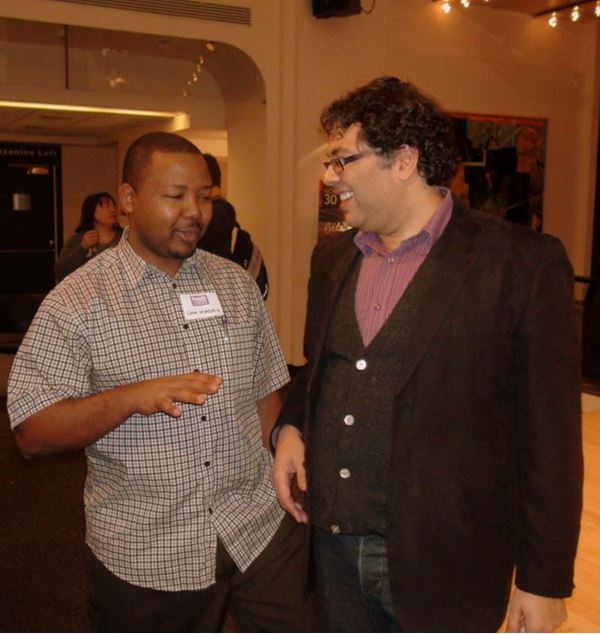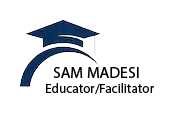What should be Taught?
All said and done, I believe that Knowledge, skills and attitudes are the three fundamental prerequisites for anybody to be refereed to as educated or even learned. These three are not fully acquired during schooling but are life-long learning needs for all of us. In fact I believe that the more an individual develops critical learning consciousness, the more he/she learns that they don’t know a lot of things which might inspire them to learn more. In my opinion, what should be taught are the gaps identified by each individual in their learning consciousness. Accordingly, it is only that individual who has gone through a critical learning consciousness process that can determine what they need to learn (content), how they need to learn it (process), where they need to learn it (formal, informal, or non-formal) and why they need to learn it (rational, personal goals).
Almost everyone I have talked to seems to agree that the curriculum is old-fashioned and some of the content is irrelevant to the modern society today. So, why do we still have those curriculum and yet educators, learners and critiques are all in some sort of agreement? For example, it does not matter whether you choose to study law, engineering, medicine, social work, history or political science, whatever it is, sold knowledge of how credit cards work, how interest rates are calculated, how and when credit ratings are done, why and how to build a healthy retirement accounts are just a few of the personal financial needs that every human being should learn. Why do we have to learn the hard way when to some people its too late to fix the mess? Ignorance is not only a terrible disease, its also very expensive. Watch this video:
In 2005 when I joined the Coady International Institute, we had what was known as ‘home groups’ where a handful of participants and a Coady facilitator gathered every morning before classes to reflect on previous day’s leanings and discuss a topic of interest to them that might not be covered in the classroom. This was a great opportunity for participants to discuss topics that are of interest to them as they apply to their workplaces or future goals. In 2006, management had received so-much positive feedback and as part of innovative facilitation plans, home groups were elevated to a week-long ‘cooperative inquiry seminars‘ where participants with a facilitator would agree on a topic they wanted to research and share experiences together. I was pleased to facilitate a series of these participant-lead seminars and I was thrilled by the energy levels, spirited motivation and interest exhibited by participants during these seminars. These cooperative inquiry seminars were unique and not to be compared with other elective courses. No doubt that elective courses offer another opportunity for participants to study what interests them but they are still choices offered by the institution and not something coming from participants themselves.
Should we teach students to fit in society or teach them to change it? It does not matter what class I teach, I always want to include the theories and principles of liberating education so that I can help to free their maid to take initiatives, formulate ideas, solve problems and generally think for themselves. Its unfortunate that universities continue to teach students to recite and reproduce textbook knowledge just to pass exams. Martin Luther King Jr argued that “the function of education is to teach one to think intensively and to think critically. intelligence plus character – that is the goal of true education.” I do not teach students who wish to find some small space in their societies to fit; I teach students who wish to find a voice and a platform in their societies in order to change the status quo.
External influences like donor communities, politicians and government policies, religious factors, business corporations and cartels among many others will all have significant influences and powers on what is taught in educational institutions worldwide. Its not just what is right in the teachers mind that appears on the curricula, its also what they have been directed to include. In the global south for example, the missionaries went there with a bible in their hands but also hand a a gun at the back and taught Christianity in schools and other public places. When the time was right and the ground leveled the colonial master switched the bible with the gun and ruled ruthlessly. Today the strategy and methodology has changed and the colonial master does not have to be physically present in their colonies because neo-colonialism is a better efficient and strategic approach. In most developing countries, about 70% of their budgets are foreign funded especially from the west/global north. The last time I checked, I found that in critical realism he who pays the piper calls the tune. Most curricula in the global south has either not changed at all or changed very little since colonial rule. The strong western ideologies continue to dominate those curricula not so much because they cant change them but because they are powerless to do so.
“A person who won’t read has no advantage over one who can’t read.” – Mark Twain
introduction
Talk to me for help
I help global learners with their ambition’s most critical issues and opportunities. Together, we create enduring change and results.

career
Find your will now
I help global scholars with their organization’s most critical issues and opportunities. Together, we create enduring change and results.


